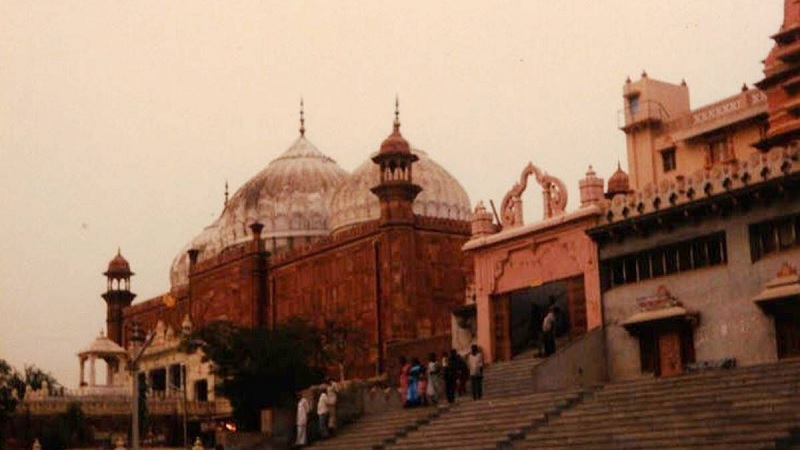 Image Courtesy:indianexpress.com
Image Courtesy:indianexpress.com
In fresh developments in the Krishna Janmabhoomi case in Mathura, a district court has now admitted a plea against the Shahi Idgah, a 16th century mosque built alongside a Krishna temple in the city.
Earlier, on September 30, 2020, a civil court in Mathura threw out a petition to remove the Shahi Idgah adjacent to a Krishna temple in the city. Civil Judge (Senior Division) Chhaya Sharma refused to entertain the plea citing section 4 of the Places of Worship (Special Provisions) Act, 1991. Section 4 (1) of this Act says, “It is hereby declared that the religious character of a place of worship existing on the 15th day of August, 1947 shall continue to be the same as it existed on that day.”
However, the plaintiffs moved the district court against this on October 12 citing Article 25 of the Constitution that deals with “Freedom of conscience and free profession, practice and propagation of religion” and says, “Subject to public order, morality and health and to the other provisions of this Part, all persons are equally entitled to freedom of conscience and the right freely to profess, practise and propagate religion.”
The Appellants submitted, “It is the right and duty of worshipers to make every endeavour to bring back the lost property of the deity and to take every step for the safety and proper management of the temple and the deity’s property.”
On Friday, October 16, the court of district judge Sadhna Rani Thakur accepted the appeal and adjourned the hearing by two days.
Brief background of the case
In September a suit was filed before a Mathura court by the deity Baghwan Sri Krishna Virajman through next friend Ranjana Agnihotri. The other plaintiffs were Sri Krishna Janmabhoomi (birthplace of the deity) and devotees. The primary contention was that the Krishna Janmastan Seva Sangh that looked after the temple property had allegedly entered into an illegal compromise with the Committee of Management of Trust Masjid Idgah in 1968 by way of which a huge chunk of land was given to the Idgah including the spot where the deity was born. The plaintiffs had submitted, “The original karagar i.e birthplace of Lord Krishna lies beneath the construction raised by Committee of Management i.e Trust Masjid Idgah.” It insisted that the truth would be revealed if an excavation were to be conducted.
The language of the petition itself was deeply communal, as at one point it said, “Under Hindu Law prevalent in India from thousands of years it is well recognized that the property once vested in the deity shall continue to be the deities property and property vested in the deity is never destroyed or lost and it can be regained and re-established whenever it is freed, found or recovered from the clutches of invaders, ultras or hoodlums. The Privy Council, High Courts and the Hon’ble Supreme Court in catena of decisions have endorsed the above proposition of law.”
In the months preceding this complaint a Krishna Janmabhoomi Nyas Trust was registered on July 23 that counts among its members 80 ‘saints’ from 114 states. On the night of September 20, 2020, members of the Hindu Army were arrested for making a call for the Krishna Janmabhoomi movement. It is also noteworthy that chants of “Ayodhya toh jhaanki hai, Kashi-Mathura baaki hai,” go back to the late 80s and early 90s when the Ram Janmabhoomi movement was at its peak.
Related:
Krishna Janmabhoomi case: Appeal against Mathura Court order
Krishna Janmabhoomi: Mathura court dismisses plea against Shahi Idgah
And so it begins: Civil suit filed to remove Idgah next to Krishna temple in Mathura
Hindu Army members arrested for launching ‘Krishna Janmabhoomi’ movement
Are Kashi-Mathura mosques in the crosshairs of hardliners again?